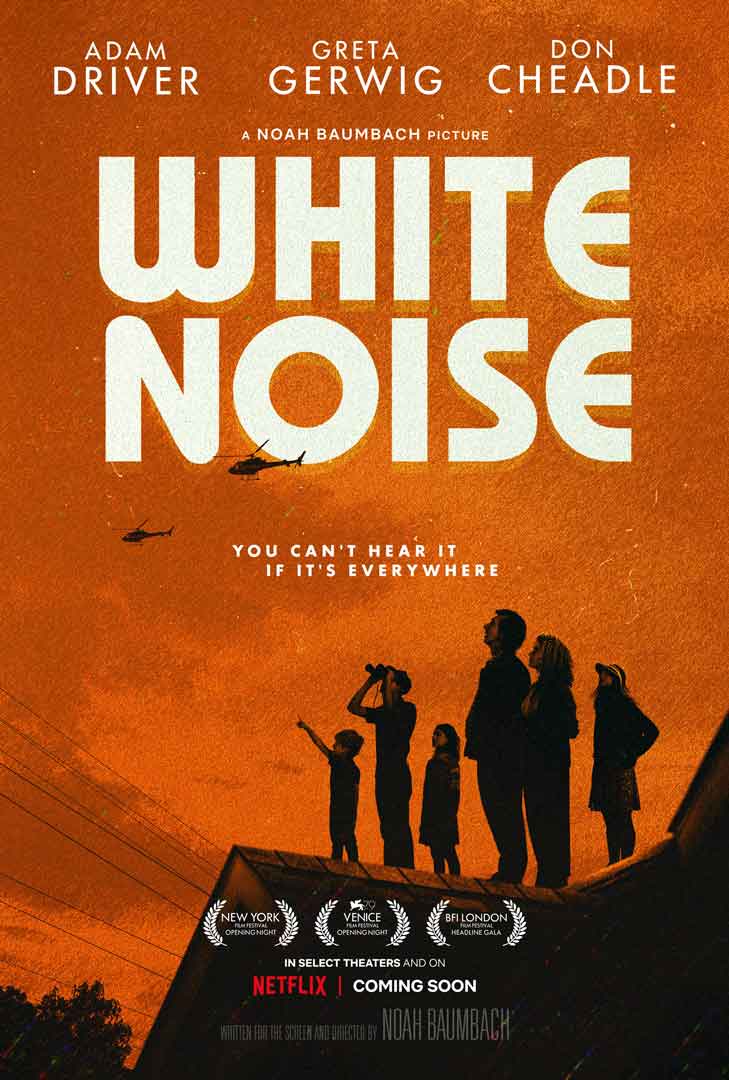Across thirty years and around twelve executive endeavors, we have come to understand what A Noah Baumbach Film is. We could expect some lo-fi Millennial Manhattanite tension (Frances Ha, Fancy woman America); maybe a Sundance-accommodating way to deal with middle-age male discomfort (Greenberg, While We’re Youthful); or a profoundly legitimate examining of connections and family (Marriage Story, The Meyerowitz Stories).

Background noise, producer’s most recent, has all of the above bound into it, brimming with his typical panache and scholarly thoroughness, however it feels profoundly surprising for our thought process of as A Noah Baumbach Film: this is a prophetically catastrophic science fiction fantastic, offering activity set-pieces, dead bodies piling up, a broad Hollywood score from Danny Elfman — and a jarringly strange post-credits dance succession. It is an odd monster.

Adjusted by Baumbach loyally from the novel by Wear DeLillo, it sees as new significance in the writer’s ponderings on mortality and Cold Conflict distrustfulness, given our ongoing worldwide tensions — however it embraces an elevated interpretation of the book’s ’80s setting, considering enormous hair and pastel, retro designs. The film’s opening lays out its interested, curve comical inclination: Adam Driver is the hero teacher of ‘Hitler Studies’ at the imaginary ‘School On-The-Slope’, unobtrusively humiliated at not yet having the option to communicate in German.

Along with Babette (Greta Gerwig, a pleasure to find before the camera again following six years away), the couple raise a tenderly tumultuous group of successful kids from across one another’s relationships. There are additionally crackpot bit-parts from any semblance of Wear Cheadle, Jodie Turner-Smith and André Benjamin as individual teachers.

It takes a little becoming accustomed to. Baumbach is no more peculiar to mannered talking except for the discourse here feels like an especially unambiguous expressive decision — purposely unnaturalistic line-readings that might have come from a Yorgos Lanthimos film. Add a few glimmers of Wes Anderson (a previous Baumbach partner) in its idiocies and trips of extravagant, and it might require an adjustment to its freaky recurrence.

You’ll have to hang on close when the film transforms from an eccentric family show into destruction mongering oppressed world. While it’s hard not to add a pandemic purposeful anecdote to it — lines like, “I need to realize how terrified I ought to be!” feel culled from the spring of 2020 — Baumbach appears to be quick to bring an overall anxiety toward mortality in all structures. Both Jack and Babette talk continually of death, and straightforwardly trust that the other will kick the bucket first.

Does everything cling? Nearly. Regardless of whether they at times feel launch in from another film, the activity arrangements are quite very much shot, and in the event that you can get your head around the tone, it tends to be cleverly amusing. It’s truly just in the third demonstration, with a homicide connivance subplot, that the film begins to feel all in all too rambling and muddled. Yet, it basically leaves things on a high, with that dance succession, set to a LCD Soundsystem banger — parody you can depression to.

Leave a Reply